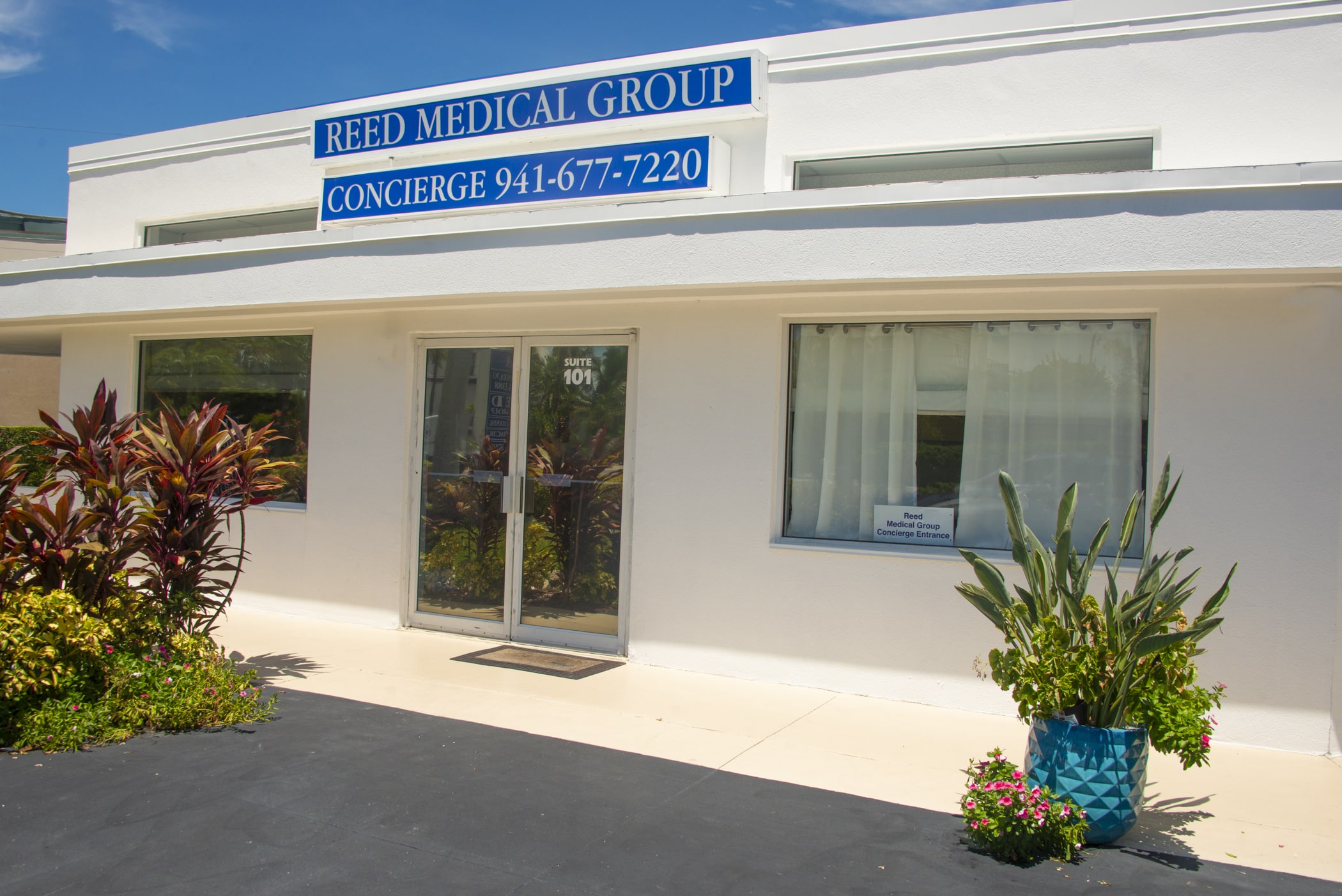Imagine a healthcare experience that prioritizes you, with personalized attention, direct access to your physician, and a strong doctor-patient relationship. Welcome to the world of concierge primary care, a unique solution to the challenges of modern healthcare.
Concierge care offers personalized attention, direct access to the doctor, and strong doctor-patient relationships. Financial considerations include membership fees or a flat rate alternative with direct primary care. Concierge medicine is proven to have a positive effect on overall health outcomes through increased satisfaction and preventative care.
Unlocking the Essentials of Concierge Primary Care

Concierge medicine is a healthcare approach that provides personalized attention and immediate access to physicians at an extra cost. The shared objective of concierge care, membership medicine, and platinum practice is to provide radical, high-quality hospitality in healthcare through the concierge medicine model. Concierge medicine stands out from other standard healthcare options by offering personalized care to the communities they serve.
There are some limitations to concierge medicine, such as limited availability and varying medical insurance coverage for concierge services. However, the benefits of personalized care, direct access, and strong doctor-patient relationships often outweigh these drawbacks.
The Core of Concierge Care: Personalized Attention
In the realm of concierge care, physicians usually attend to fewer patients daily, allowing for comprehensive appointments lasting anywhere from thirty minutes to an hour, based on the patient’s requirements. Concierge doctors can offer a heightened level of care, as their workload is reduced from fee-for-service models. This permits them to spend more time on individual patients; in comparison, 30 or more people may be seen in the same day under traditional models..
Personalized concierge care typically includes:
- Personalized and comprehensive care
- Direct access to the doctor
- Same-day appointments
- 24/7 availability
- Coordination of care for emergencies
- Additional services not covered by insurance
This level of personalized attention is what sets concierge care apart from traditional primary care.
Direct Access: The Concierge Commitment to Availability
Immediate access to concierge physicians ensures patients maintain instant communication with their primary care physician, guaranteeing prompt and convenient care. Some benefits of concierge doctors include:
- Reduced patient panel, allowing for more personalized care
- Shorter average response time compared to traditional physicians
- More time spent with each patient during appointments
These advantages make concierge medicine an attractive option for those seeking a higher level of care and attention from their healthcare provider.
Patients enrolled in concierge medical services typically benefit from direct and enhanced communication channels with their primary care physicians. These channels may include:
- Phone calls
- Text messaging
- Webchat
- Virtual appointments conducted via digital communication channels
This ensures that patients always have access to their physician when they need it most.
Nurturing a Personal Relationship with Your Physician
Concierge medicine strengthens personal bonds with patients through technology use, extra time and focus, relationships founded on trust and respect, and projecting a welcoming demeanor. Patients may find numerous psychological benefits from establishing a personal relationship with their concierge physician, such as feeling more understood and supported, having increased trust and confidence in their physician, and feeling more satisfied with their healthcare experience.
The personalized and attentive care provided by a concierge physician may help to reduce any anxiety or stress related to medical concerns. This focus on building strong doctor-patient relationships is an essential aspect of concierge medicine and contributes to better overall health outcomes.
The Financials of Concierge Care: Costs and Considerations

Concierge care is a form of primary care that provides tailored attention and immediate access to a physician. It is typically more costly than traditional primary care, with fees ranging from $1,200 to $10,000 per year, depending on the practice and location. However, it can provide a variety of advantages which may make it worthwhile.
Concierge care can be financed through Health Savings Accounts (HSAs) and private insurance. The primary advantage of concierge primary care is that most primary care visits are covered by a single annual fee, thus resulting in lower overall healthcare costs in the long run.
Understanding Concierge Fees: What’s Included in the Price?
The services included in the price of concierge fees may vary depending on the practice and the particular membership package. Common services that are generally included are:
- Same-day or next-day appointments
- Longer appointment times with the doctor
- 24/7 access to the doctor via phone or email
- Preventive care and wellness services
- Coordination of specialist referrals
- Chronic disease management
- Annual comprehensive health assessments
- Prescription management
- Health coaching and lifestyle counseling
The cost of concierge medicine can vary depending on location or region. It is essential to understand the services included in the fees and compare different practices to ensure you are getting the best value for your investment.
Balancing Cost with Care: Is Concierge Medicine Worth It?
Concierge medicine provides a number of advantages over traditional medical practice, such as:
- Smaller practice sizes
- Improved patient-physician relationships
- 24/7 access to care
- Comprehensive annual physicals
- A focus on personalized, preventive care
However, individuals should thoroughly evaluate the associated financial implications and decide if the benefits outweigh the added cost.
Research indicates that patients who choose concierge medicine frequently express greater satisfaction with their care. Additionally, research has shown that concierge care leads to better overall health outcomes. By weighing the costs and benefits, individuals can make an informed decision about whether concierge medicine is the right choice for them.
Health Savings Accounts and Private Insurance: Funding Your Concierge Care
A Health Savings Account (HSA) can be utilized for concierge medicine, but there are certain restrictions. Concierge medicine membership fees are typically not included in health savings account coverage. Nevertheless, there may be methods of circumventing this limitation.
While HSAs can be used to cover some healthcare costs, they may not fully cover the fees associated with concierge care. Private insurance may offer some coverage for concierge services, but it is important to contact both your insurance provider and the concierge practice to gain a better understanding of the coverage options available.
A Day in the Life with Concierge Primary Care

Concierge primary care, provided by a concierge doctor, offers a distinctive healthcare experience with personalized care, extended appointment duration, and round-the-clock access to healthcare professionals as required. Patients enjoy the luxury of time, allowing for more in-depth consultations and more thorough care within concierge medical practices.
The comprehensive services offered by concierge primary care include:
- Annual exams and preventive screenings
- Primary and urgent care services
- Home-based primary care for elderly or homebound patients
- Flexible scheduling
These services provide a well-rounded healthcare experience for patients.
From Lab Tests to Lifestyle Advice: Comprehensive Services Offered
Concierge care offers a wide range of services, including:
- Lab tests
- Lifestyle advice
- Blood work-up
- Complete blood count
- Chemistry panel
- Urinalysis
- Specialized tests such as nutritional screening tests
These services are typically included in concierge primary care.
Concierge primary care physicians offer tailored health plans that encompass:
- Lifestyle changes
- Advice on managing medication
- Motivation for lifestyle alterations like a low-sodium diet, consistent exercise, and stress management
- Healthy living advice including a balanced diet, proper hydration, ample sleep, and prioritizing mental health.
The Luxury of Time: Longer Appointments with Fewer Patients
Patients under concierge care benefit from extended appointments and more concentrated attention owing to fewer patient loads. Most concierge practices guarantee at least 30 minutes for each appointment, providing a more comprehensive and individualized approach to patient care.
The extended appointment times allow for a more in-depth exploration of patient concerns and a more comprehensive approach to care. This contributes to enhanced patient-provider relationships and a heightened sense of trust and satisfaction in the care they receive.
Round-the-Clock Support: 24/7 Access to Health Care Professionals
In concierge care, patients have 24/7 access to their healthcare providers. This access is facilitated through various means, such as a dedicated phone line, a mobile app, or direct communication with the doctor. Thus, patients can contact their healthcare providers anytime they require medical assistance or have questions, ensuring timely and personalized care.
The round-the-clock support offered by concierge care means that patients always have a lifeline to their healthcare professionals, providing peace of mind and ensuring they receive the best possible care when they need it most.
Comparing Models: Concierge Medicine vs. Direct Primary Care Practice
While concierge medicine and direct primary care practices both provide personalized care and immediate access to physicians, there are differences in their pricing structures and the services they offer. Concierge medicine emphasizes value-added services and typically has higher costs due to membership fees.
Direct primary care, on the other hand, focuses on reducing overhead expenses by eliminating insurers and offers a more affordable, flat-rate alternative. Understanding the differences between these models can help individuals make an informed decision about which healthcare option best suits their needs and priorities.
The Concierge Model: Premium Service at a Premium
The concierge model offers premium services at a higher cost. Some of the premium services available through concierge medicine include:
- Exclusive primary care physician services
- Personalized and accessible care
- Extended office visits
- Executive lab panels
- Vascular scans
- Testing
- Access to specialists for medical issues
The cost of concierge medicine typically ranges from $1,200 to $10,000 annually, depending on the practice and location. It is essential to understand the services included in the fees and compare different practices to ensure you are getting the best value for your investment.
Direct Primary Care: A Flat-Rate Alternative
Direct primary care provides a more affordable, flat-rate alternative to concierge medicine. The pricing structure for direct primary care typically includes a monthly fee or retainer that covers unlimited primary care services. The monthly fee can range from $30 to $300.
The direct primary care model offers a range of services provided by a primary care doctor, including:
- Comprehensive primary care services
- Extended and unhurried visits
- 24/7 access to the provider
- Same-day or next-day appointments
- Coordination of care
- Wellness and preventive services
- In-house procedures and tests
This flat-rate alternative can be an attractive option for individuals seeking personalized care without the higher costs associated with concierge medicine.
The Impact of Concierge Medicine on Overall Health Outcomes
Concierge medicine can have a positive influence on overall health outcomes owing to individualized care and robust doctor-patient relationships. Studies demonstrate that patients using concierge medicine are often more satisfied with their care, leading to better overall health outcomes.
The focus on preventative care, personalized attention, and strong doctor-patient relationships in concierge medicine all contribute to the improvement of overall health outcomes, making it a valuable investment for many individuals.
Transitioning to Concierge Care: Making the Final Decision
The decision to switch to concierge care demands thoughtful evaluation of personal priorities, required services, and financial implications. It is essential to evaluate the costs associated with concierge care and compare them to the benefits of personalized attention, direct access, and strong doctor-patient relationships.
By understanding the distinctions between concierge medicine, direct primary care, and traditional healthcare, individuals can make an informed decision about which healthcare option best suits their needs and priorities.
Summary
In conclusion, concierge primary care offers a unique and personalized healthcare experience that prioritizes the patient. With its focus on personal attention, direct access, strong doctor-patient relationships, and comprehensive services, concierge medicine can positively impact overall health outcomes. By carefully considering the costs, benefits, and available funding options, individuals can determine if concierge care is the right choice for their healthcare needs.
Frequently Asked Questions
What is the purpose of a concierge doctor?
Concierge doctors provide direct access to and personalized care for their patients, with increased availability and flexible scheduling. They have a better understanding of their patient’s medical history, and are well-suited to those living with chronic conditions.
What are the pros and cons of a concierge doctor?
The pros of a concierge doctor include increased access to personalized care, fewer waiting times, and the ability to get same-day appointments. However, the cons of such an arrangement include having to pay higher out-of-pocket fees and limited access to specialists due to time constraints.
How does a concierge medical practice differ from a traditional practice?
Concierge medical practices generate revenue from both insurance payments and membership fees, allowing them to provide more extensive services than a traditional practice that relies solely on insurance payments.
What is the main difference between concierge medicine and direct primary care?
Concierge medicine involves membership fees and offers value-added services, whereas direct primary care is more affordable and eliminates insurers to reduce overhead expenses.
What services are generally included in concierge fees?
Concierge fees generally provide personalized and comprehensive care, same-day appointments, 24/7 availability, emergency coordination, and additional services not covered by insurance.
